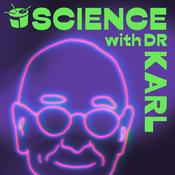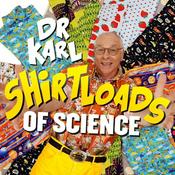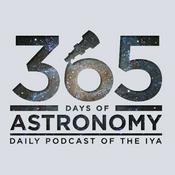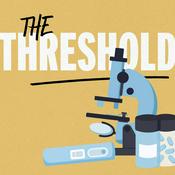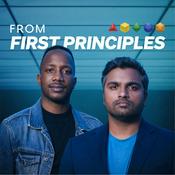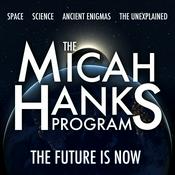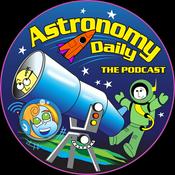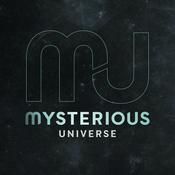10 episodes

Launch and Return Down Under
31/10/2025 | 31 mins.
Capitalising on numerous advantages – including an expansive landscape and ease of access to desirable orbits – Australia is growing its reputation as a valuable launch and return destination for the international space community. Southern Launch and Gilmour Space are two companies leading the way with support from our Agency. In this episode, we talk with them about their growing offering of commercial launch and return technologies and services on our shores. Our featured guests for this episode are Amy Featherston (Southern Launch) discussing her company’s operations from South Australia, including a mobile launch rail system and space capsule return collaborations with American company Varda, and Adam Williams (Gilmour Space) discussing his company’s Eris rocket program, with ambitions to launch the first ever Australian-made rocket from Australian soil in Bowen, Queensland.

Reaching New Frontiers with Australia
19/08/2025 | 22 mins.
The next decade will see humanity reach further, dig deeper, and discover more about our universe. Australia's space industry is helping to make it happen - and in this episode of Outback To Orbit, you'll meet two Aussie companies headed for the Moon, with support from our grant programs. Our featured guests for this episode are Matthew Suntup (Advanced Navigation) discussing his company’s trailblazing navigation systems, including the LUNA Laser Velocity Sensor which will help Intuitive Machines land on the Moon, and Braeden Borg (Fleet Space Technologies) discussing SPIDER, a small seismic payload that will search the Moon for water ice deposits by recording the natural seismic waves in the lunar subsurface.

Sustainable Space: Made in Australia
14/07/2025 | 57 mins.
Welcome to a brand new season of Outback to Orbit, which comes as we build up to the 2025 International Astronautical Congress (IAC). It's the biggest space industry event on the planet - and this year, it’s happening in Sydney. To mark the occasion, we’re looking at some key space capabilities Australia has to show the world, and we begin with the 2025 IAC theme of 'Sustainable Space: Resilient Earth'. In this episode, we meet some Australian space innovators who've created technologies that help keep valuable space activities safe, efficient, and economically viable for the long-term - plus one company refining how we use space data to improve environmental sustainability on Earth. Our featured guests for this episode are Paddy Neumann (Neumann Space) discussing the Neumann Drive electric spacecraft thruster fuelled by metal, Julia Mitchell (Space Machines Company) discussing in-orbit spacecraft servicing and the Space MAITRI mission, William Crowe (HEO) discussing non-Earth imaging cameras that monitor objects and activities in space, and Venkat Pillay (LatConnect 60 / LC60 AI) discussing how to make insights from Earth observation satellite data more useful and affordable. We also kick things off with a quick history lesson on IAC from the Agency's resident space historian Kerrie Dougherty.

Spinning Out
31/10/2024 | 46 mins.
The idea of this podcast series is to highlight how Australian space technology valuably intersects with our lives and the services we use down here on Earth - so, to wrap things up neatly for Season 1, we’re looking at some Australian companies that have found ways to ‘spin out’ their space technology to serve needs on Earth, or ‘spin in’ to the space industry by pushing their Earth-based technology to new extremes... quite literally going from Outback To Orbit. Hear about Conflux Technology creating a 3D-printed heat exchanger for a rocket engine, Myriota expanding their Internet of Things data transmission services across the globe to the Moon and beyond, and Human Aerospace channelling its spacesuit expertise into custom-made compression garments for better healthcare on Earth. Our featured guests for this episode are Glenn Rees (Conflux Technology), Nicole Russo (Myriota), and Dr James Waldie (Human Aerospace).

That's The Spirit
30/09/2024 | 41 mins.
Launched in December 2023, SpIRIT is a landmark Australian nanosatellite. It’s a collaborative industry mission led by the University of Melbourne, bringing together some of the most advanced satellite technology Australia currently has to offer. It's supported by close to $7 million of grant funding from the Australian Space Agency. And it’s also an international cooperation - SpIRIT is carrying the HERMES x-ray detector from the Italian Space Agency, designed to locate high-energy gamma ray bursts in space that occur when stars die and become black holes. Just shy of halfway through the two years it will spend in orbit, SpIRIT has marked some key achievements, and there's much more to look forward to as it showcases its range of Australian innovations to the world. Our featured guests for this episode are Professor Michele Trenti (University of Melbourne) and Simone Pirrotta (Agenzia Spaziale Italiana - Italian Space Agency).
More Science podcasts
Trending Science podcasts
About Outback To Orbit
Listen to Outback To Orbit, Science Vs and many other podcasts from around the world with the radio.net app
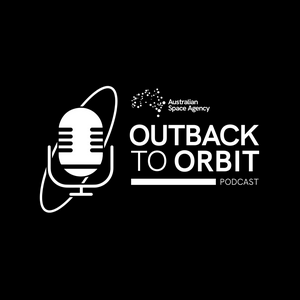
Get the free radio.net app
- Stations and podcasts to bookmark
- Stream via Wi-Fi or Bluetooth
- Supports Carplay & Android Auto
- Many other app features
Get the free radio.net app
- Stations and podcasts to bookmark
- Stream via Wi-Fi or Bluetooth
- Supports Carplay & Android Auto
- Many other app features


Outback To Orbit
download the app,
start listening.

